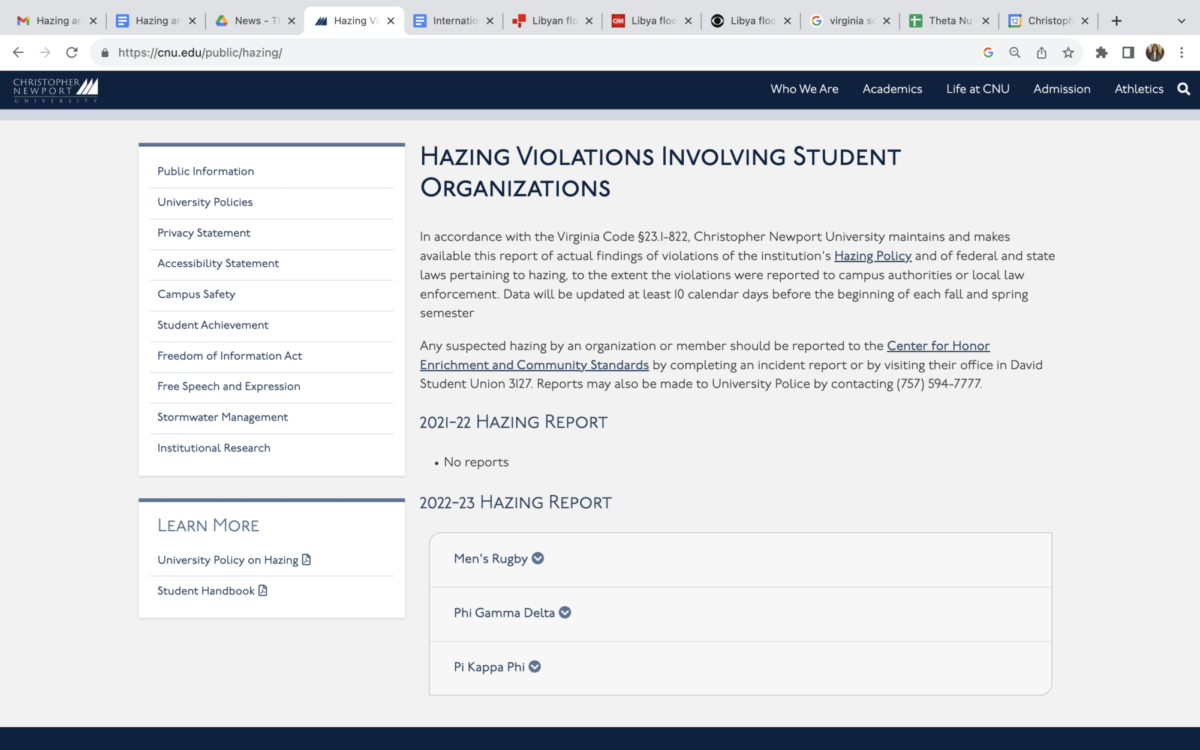This past year, the state of Virginia implemented a new policy in which anyone can view records of hazing incidents that have occurred at the school over the past year. Christopher Newport University’s hazing reports are only visible for the 2022-2023 academic year with three violations from different student organizations currently posted.
This policy is in place to hold student organizations accountable for their new member hazing and is an effort to prevent future incidents. It can cause negative impacts on the organizations whose misconduct and transgressions are posted online.
In accordance with the Virginia Code §23.1-822, CNU must make this report of violations available and up to date for the public. With clear violations of federal and state laws pertaining to hazing, the community has a right to know what is going on within any organization and its hazing.
As hazing is an illegal offense, CNU also has their own hazing policy that is available to the public on their website. The policy states, “It is the responsibility of all members of the university to support and encourage an atmosphere of learning, social responsibility, and mutual respect where members do not intentionally cause harm, or risk causing harm to one another. Hazing is an unproductive and hazardous activity that is contrary to this responsibility.”
Included in the policy is how to report a hazing incident: talking to campus police, reporting it to anyone involved in Residence Life and The Office of Orientation and Student Involvement, as well as the Center for Honor Enrichment and Community Standards (CHECS), which you will always have to do to fully complete an incident report. CNU states on its website that data involving hazing incidents “will be updated at least 10 calendar days before the beginning of each fall and spring semester.”
The hazing reports currently listed on the website are quite thorough, listing the date the incident occurred and the dates the investigation began and concluded. It also has a description of the incident, what the charges were, findings of responsibility, and what sanctions were taken. Most sanctions involved disciplinary probation, anti-hazing training, and a risk management plan. All students involved in an organization, including new and current members, are required to attend anti-hazing training provided by the Office of Orientation and Student Involvement annually. It is a collaborative process where students can work together to identify the different types of hazing and why it is illegal and unsafe.
There are many resources and tools on campus should someone ever find themselves involved in a hazing incident.

